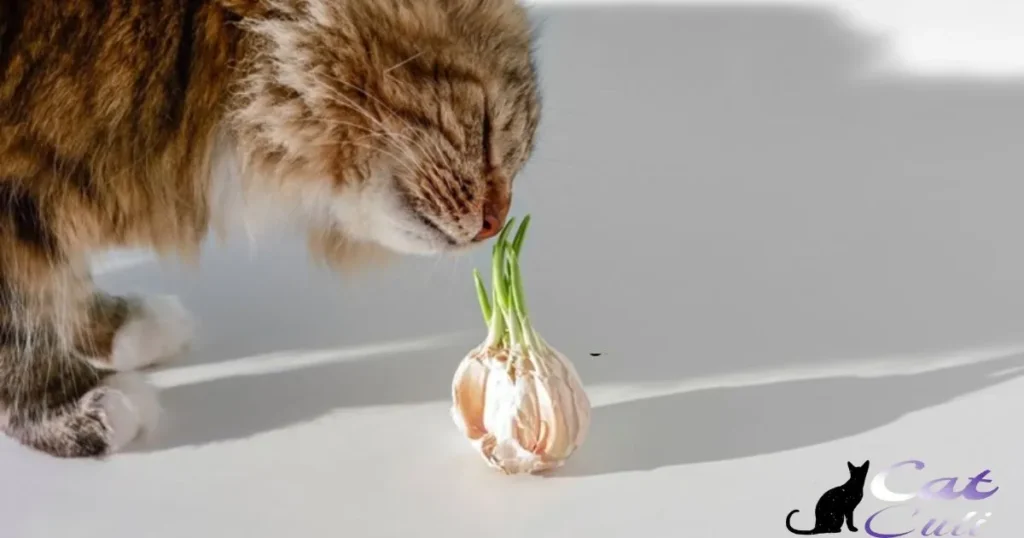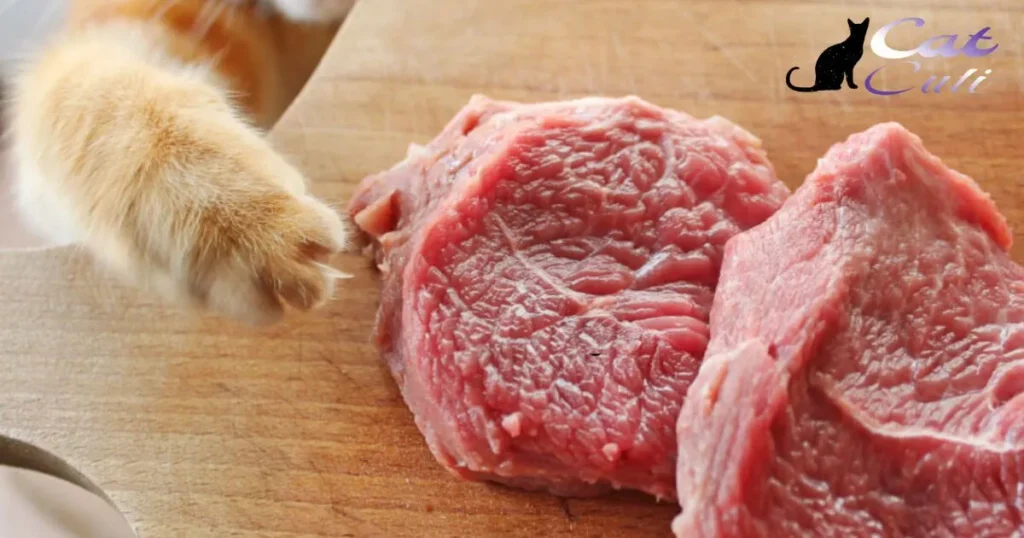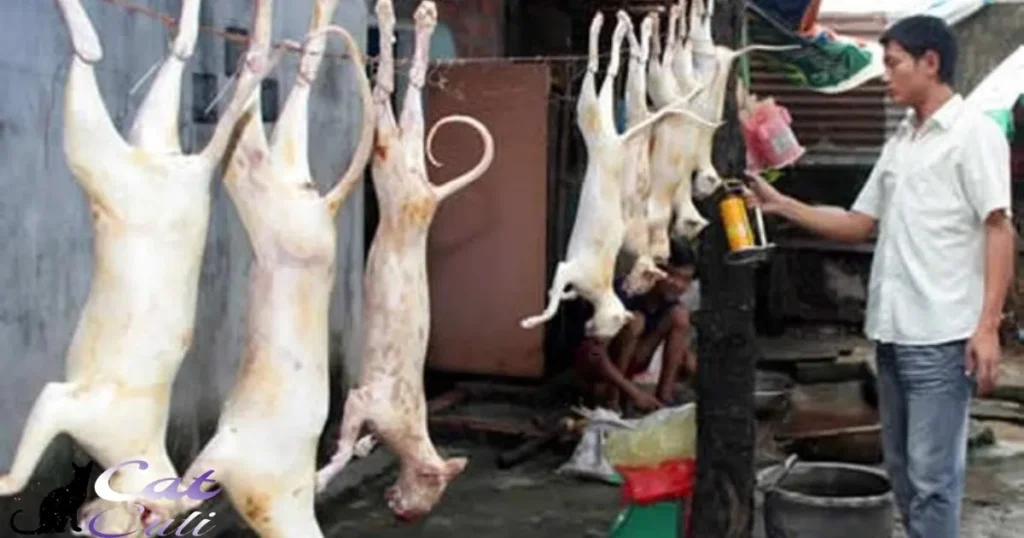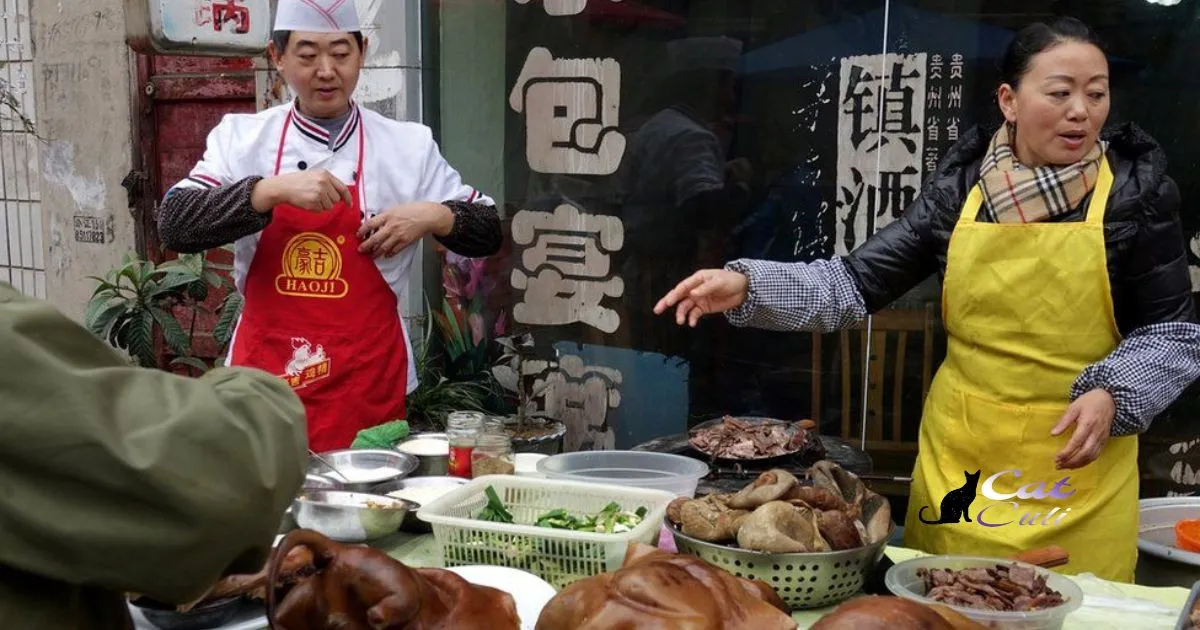Cats should avoid Chinese food due to potential ingredients harmful to them, like onions and garlic. Some elements in Chinese dishes may upset their stomachs, leading to discomfort. It’s best to stick to a cat’s specialized diet to ensure their health and well-being. Consult a vet if unsure about what’s safe for your furry friend to eat.
Ever wondered, Can cats eat Chinese food? This curious question often pops up when sharing a meal with our feline companions. Exploring whether those tasty Chinese dishes are safe for your cat might just unveil surprising facts about their dietary preferences. Let’s dig into the unique world of feline diets and the compatibility with Chinese cuisine.
Certainly! When it comes to Can Cats Eat Chinese Food the concern lies in ingredients like onions and garlic that might not sit well with your furry friend’s stomach. It’s best to stick to their specialized diets to ensure their health and happiness. Stay tuned for more insights into what’s safe and what’s not for your cat’s dining adventures.
Is Chinese Food Bad For Cats?
Chinese food can potentially be harmful to cats due to certain ingredients used in many dishes. Ingredients like onions, garlic, and certain spices commonly found in Chinese cuisine can upset a cat’s stomach and may even be toxic to them. It’s important to avoid feeding Chinese food to cats and stick to their specialized diet to ensure their well-being.
Always consult with a vet if you are uncertain about what foods are safe for your feline friend.Certain elements present in Chinese food can be detrimental to a cat’s health. Onions, garlic, and various spices used in these dishes might cause digestive issues and even toxicity in cats.
To maintain their health, it’s crucial to refrain from giving Chinese food to cats and instead focus on feeding them food specifically formulated for their nutritional needs. Consulting a veterinarian is advisable to make informed choices about what’s safe for your cat to consume.
15 Toxic Human Foods You Should Never Feed Your Cat
- Chocolate: Contains theobromine, harmful to cats.
- Onions and Garlic: Can cause damage to a cat’s red blood cells.
- Grapes and Raisins: Can lead to kidney failure in cats.
- Alcohol: Even small amounts can be extremely dangerous.
- Caffeine: Found in coffee, tea, and some sodas, can be toxic to cats.
- Xylitol: Commonly found in sugar-free gum and candy, highly toxic to cats.
- Raw Dough: Yeast can expand in a cat’s stomach, causing blockages.
- Macadamia Nuts: Can cause weakness, tremors, and hyperthermia.
- Avocado: Contains persin, which is toxic to cats.
- Dairy Products: Lactose intolerant cats can experience digestive issues.
- Bones: Can splinter and cause internal injuries or blockages.
- Salty Foods: Excessive salt can lead to sodium ion poisoning.
- Raw Meat and Fish: May contain bacteria and parasites harmful to cats.
- High-fat Foods: Can cause pancreatitis in cats.
- Human Medications: Many human medications can be toxic to cats, so avoid giving them without veterinary guidance.
Should You Feed A Cat Human Food?
Feeding a cat human food can be tricky. Some human foods, like plain cooked chicken or fish, can be safe in small amounts, offering extra protein. However, many human foods, like chocolate, onions, or garlic, are toxic to cats and can cause serious health issues.
It’s crucial to understand which human foods are safe and which ones to avoid to keep your cat healthy and happy.Always consult your vet before sharing any human food with your cat. They can guide you on safe options and appropriate portions, ensuring that your cat gets the nutrition they need without any risks to their health.
Offering occasional treats of cat-friendly human foods can be okay, but sticking mainly to a well-balanced cat diet is the best way to care for your feline friend.
What Kinds Of Human Foods Are Safe For Cats To Eat?
Sure thing! Cats can enjoy plain cooked chicken or turkey without any seasoning these proteins offer a tasty and safe treat. Tuna packed in water, not oil, serves as another feline-friendly human food option, but it should be an occasional treat due to its high mercury content.
Steer clear of foods like chocolate, onions, garlic, and grapes, as these can be toxic to cats. Dairy products, although cats may love them, can lead to stomach upset due to lactose intolerance. When introducing new human foods, always do so in small amounts to monitor how your cat’s system reacts to them.
Which Human Foods Are Toxic To Cats?

Onions and garlic, commonly found in many dishes, can cause damage to a cat’s red blood cells. Chocolate and caffeine, though beloved by humans, contain substances that are toxic to cats and can lead to severe health issues. It’s crucial to keep these foods out of reach and stick to a cat’s specialized diet to ensure their well-being.
Grapes and raisins might seem harmless, but they can trigger kidney failure in cats. Alcohol is a big no for felines, as even small amounts can be dangerous. Being mindful of these toxic foods is vital in safeguarding your cat’s health, making it crucial to educate oneself on what not to feed our furry companions.
What Should You Do If Your Cat Eats Something Toxic?
If your cat ingests something toxic, act swiftly by contacting your vet immediately. Keep details handy about what they consumed and how much, aiding in quick and accurate treatment. Monitoring their behaviour and any visible symptoms is crucial for the vet’s assessment.
Another step is to try inducing vomiting if recommended by the vet. This can be done using hydrogen peroxide under their guidance, but never attempt this without professional advice. Swift action and vet consultation are key in handling such emergencies, ensuring your cat’s safety and well-being.
Chinese Restaurant Shut Down For Serving Cat
A Chinese restaurant faced closure for serving cat meat in their dishes. Authorities shut it down due to reports of using an illegal ingredient cat meat in their recipes. The closure followed concerns about the unethical and illegal practice of using cats for consumption in the restaurant’s food.
This incident sparked outrage among the public, highlighting the importance of stringent regulations in the food industry. People demanded stricter measures to prevent such unethical practices, emphasizing the need for rigorous inspections to ensure food safety and uphold ethical standards in restaurants.
Can Cats Eat Rice
Cats can eat rice as it’s a digestible carbohydrate for them. However, it should be plain and well-cooked to avoid any digestive issues. Adding rice in small amounts occasionally might complement their diet, but it shouldn’t become a primary food source as cats need a balanced diet of protein and other nutrients.
Cats shared food bowls could create issues if one cat has specific dietary needs or allergies, potentially causing problems. Therefore, it’s important to monitor and control what each cat consumes, ensuring they receive the appropriate nutrients without compromising their health.
Cat Chinese Food Meme
Cats’ curious expressions and the allure of the food create a humorous juxtaposition, sparking laughter worldwide. These memes playfully explore the idea of cats indulging in a culinary adventure beyond their usual diet, resonating with pet owners and meme enthusiasts alike.
With witty captions and clever imagery, the Cat Chinese Food Meme captures the whimsical nature of our furry friends’ curiosity about diverse foods. It’s a lighthearted way to imagine cats embracing flavours outside their usual preferences, making it a delightful internet sensation that continues to bring smiles to people’s faces.
What Is Cat Meat Called

Cat meat is referred to as cat meat in various parts of the world where it’s consumed. In some cultures, it’s considered a delicacy or used in traditional dishes. However, consuming cat meat is highly controversial and often illegal in many countries due to ethical and animal welfare concerns.
While there isn’t a specific alternate name for cat meat, its consumption is a contentious issue globally. It’s essential to acknowledge the cultural differences and the ethical considerations surrounding the consumption of cat meat in various regions.
Dog And Cat Meat
| Aspect | Dog Meat | Cat Meat |
| Consumption | Consumed in certain cultures for centuries | Consumed in some regions, highly controversial |
| Legal Status | Legal in some countries, illegal in others | Illegal in many countries, limited consumption |
| Cultural Views | Considered a food source in some traditions | Often met with strong opposition and taboo |
| Ethical Concerns | Raises ethical debates and animal welfare issues | Raises strong ethical and animal cruelty concerns |
Chinese Restaurants Caught Serving Cat
Recent reports uncovered Chinese restaurants serving cat meat, shocking both customers and authorities. The incidents revealed a concerning trend, raising alarms about food safety and ethical practices.
People are urging strict measures to prevent such appalling practices and ensure the integrity of food served in restaurants.These revelations highlight the importance of stringent regulations and oversight within the food industry.
Customers now emphasize the need for transparency and accountability from eateries, demanding trustworthy sourcing of ingredients. Such incidents serve as a wake-up call, prompting a call for immediate action to prevent the exploitation of animals and maintain public trust in the food supply chain.
Chinese Restaurant Shut Down For Serving Cat South Carolina
A Chinese restaurant in South Carolina faced closure for allegedly serving cat meat. Authorities shut down the restaurant after receiving reports from concerned citizens. The incident raised significant public outrage, leading to investigations into the restaurant’s practices.
Many were shocked by the news, highlighting the importance of food safety regulations and ethical practices within the food industry.The closure of the Chinese restaurant in South Carolina stemmed from accusations of serving cat meat, prompting swift action from authorities.
Citizens’ complaints prompted an investigation, resulting in the restaurant’s closure. The incident stirred widespread public concern, emphasizing the need for stringent adherence to food safety standards and ethical conduct in the culinary business.
Chinese Restaurant Serving Cat Meat
A Chinese restaurant serving cat meat has sparked widespread controversy. People express shock and concern upon discovering such practices. Authorities are investigating to ensure animal welfare laws are upheld. This situation has ignited global discussions about ethical food practices and the treatment of animals in the food industry.
The revelation of a Chinese restaurant serving cat meat has stirred outrage among the public. Many condemn such actions, calling for stricter regulations and animal protection laws. This incident highlights the importance of enforcing ethical standards in the food industry to prevent the mistreatment of animals.
Chinese Restaurant Selling Cat Meat

Some Chinese restaurants have faced controversy for selling cat meat. These establishments drew attention for serving dishes made from cats, sparking outrage among animal rights activists and the public.
Authorities have intervened in several cases to enforce laws against such practices, emphasizing the importance of ethical and legal standards in the food industry.While rare, instances of Chinese restaurants selling cat meat have raised serious ethical concerns.
These incidents have prompted widespread condemnation and legal actions aimed at preventing the consumption of such animals, highlighting the need for stricter regulations to ensure the humane treatment of all animals within the food supply chain.
Chinese Restaurant Closed Down For Serving Cat
A Chinese restaurant faced closure for serving cat meat, stirring public outrage. Authorities shut it down after discovering the illegal practice. Customers were shocked to learn about the restaurant’s unethical choice of ingredients, prompting a swift response from officials.
The incident highlighted the importance of food safety regulations and animal welfare in the food industry.The closure of a Chinese restaurant made headlines due to allegations of serving cat meat, prompting swift action from authorities.
Outraged customers expressed shock upon learning about the unethical practice, leading to the restaurant’s shutdown. This incident underscores the crucial need for stringent enforcement of food safety laws and ethical treatment of animals in the culinary landscape.
Chinese Restaurant Caught Serving Dog
A Chinese restaurant recently faced backlash for serving dog meat, sparking outrage among locals. Customers were shocked to discover this unethical practice, leading to widespread condemnation on social media. Authorities swiftly intervened, shutting down the restaurant and launching an investigation into the illegal trade of dog meat.
People are calling for greater transparency and stringent measures to prevent such inhumane practices from occurring in the future. This event has ignited a conversation about animal welfare and the importance of upholding ethical standards in food establishments.
FAQ’s
Can cats eat Chinese pork?
Cats can have cooked, unseasoned pork in small amounts as a treat, but it’s not ideal due to high fat content and seasoning risks.
Can cats eat noodles?
Plain, cooked noodles in moderation might be okay, but they lack nutritional value for cats. Ensure no seasoning or sauces.
Is garlic OK for cats to eat?
No, garlic is toxic to cats. It can damage their red blood cells, leading to health issues. Avoid it completely in their diet.
Conclusion
In summary, the question Can Cats Eat Chinese Food? raises concerns about a feline’s diet. While some ingredients in Chinese cuisine can be harmful to cats, others might be safe in small, controlled portions. Onions, garlic, and certain spices commonly used in Chinese dishes should be avoided, as they can cause digestive issues or even toxicity in cats.
Understanding a cat’s dietary needs is crucial for their well-being. Opting for a specialized cat diet ensures they receive the essential nutrients without risking their health. When in doubt about what Chinese foods are safe for cats, consulting a veterinarian remains the best approach.








